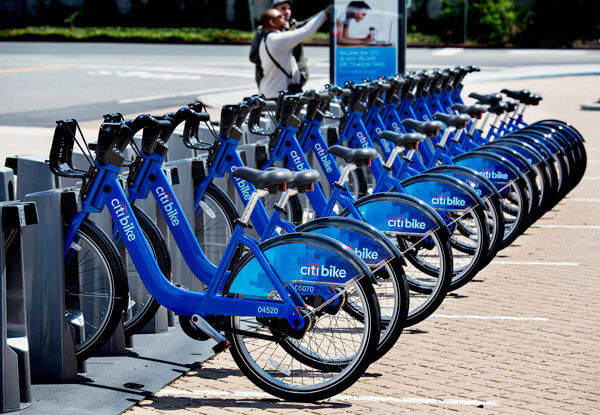By Stephen Witt
While the recent transit strike was a bust to some borough businesses, it was a boon to others, according to a Brooklyn Chamber of Commerce informal survey of retail members. However, the survey also found that many of the losses were offset by a generally good 2005 as a whole. “What our survey results seem to indicate is, while some retailers took a big hit this holiday season because of the strike, others benefited,” said Randolph Peers, Vice President of Economic Development at the Brooklyn Chamber of Commerce. “One of our earlier surveys indicated that revenue for 2005 had already been up for over half of our businesses as a result of a stronger economy,” Peers said. The telephone survey polled more than 20 retailers who traditionally experience an upswing in business during the holiday shopping season. These businesses include specialty shops, clothing, food and beverage retailers and restaurants. When asked specifically about the transit strike, 43 percent of the business owners said it hurt sales significantly and 14 percent said it hurt sales somewhat. On the other hand, 14 percent said the strike helped sales significantly and 5 percent said the strike helped sales somewhat. About a quarter, or 24 percent, of respondents said the strike had no effect. Within the survey, retailers also said high operational expenses such as fuel, utilities and delivery charges, increased competition and a lack of consumer confidence contributed to lower sales during the holiday shopping season. Others said factors credited with improving sales include a bustling housing market and revitalized neighborhoods, networking and marketing, as well as customer loyalty and referrals. “When we asked retailers how they fared overall in 2005, 48 percent indicated sales for the entire year met or exceeded expectations and 67 percent indicated holiday sales were either better or about the same as 2004. In some cases, certain neighborhood commercial strips were actually helped by the strike,” said Peers. “Difficulty getting to and from Manhattan and the overall lack of public transportation forced more shoppers to turn to the businesses in their communities,” he added. Among the neighborhoods that reported doing better during the strike were Bay Ridge, Park Slope and Prospect Heights, said Peers. Jillian Cavaliere, manager of Lavender Blue at 8702 Third Avenue in Bay Ridge, which sells candles, bath products, aromatherapy and items for babies, said the strike was actually beneficial. “It [the strike] helped a lot of customers and local residents realize there’s other stores in the neighborhood, because they weren’t able to go to work,” said Cavaliere, explaining that many Bay Ridge residents take the subway to work at 8 a.m. before the store opens and get home after the store closes. “Ours is a more personal store and the strike allowed more people in the community to know about it,” Cavaliere said.


































